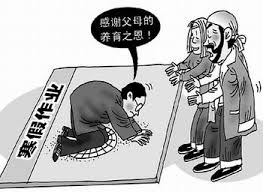INVISIBLE NEIGHBOUR
Winds of change are blowing through Myanmar. The new civilian government of President Thein Sein has of late been busy ushering in reform, of both political and economic kinds. There are unprecedented gestures of goodwill towards the democracy movement leader, Aung San Suu Kyi, freer debate in the parliament, crackdown on corruption, moves to bring competitiveness and transparency to the opaque business sector, some more freedom for the muzzled media. Even Myanmar’s fiercest critics are taking note of the changes, the only question being, is the government serious about staying the course? Doubt over sustainability is legitimate, given Myanmar’s past faltering at liberalization. But in India, we must take the shifting winds for real — these developments are both a challenge and an opportunity — and fine-tune our policy......
While on the subject of privileged relationships, there is speculation about China’s future standing. If they are able to find greater acceptance from the rest of the world with their new openness, would Myanmar’s leadership still need China’s protective umbrella? China not only stood steadfast, on innumerable occasions, between the old regime and global accountability, it also threw, even if as much in self-interest, vital economic lifelines that Myanmar needed when shunned by powerful nations. Starting in the late 1980s, especially volatile times for Myanmar, China cemented its position through astute policy and determined implementation. And this happened in spite of Beijing’s being caught on the wrong side of much of Myanmar’s modern history.
China’s current ranking as pre-eminent external partner is unlikely to change any time soon though, faced with greater openness in Myanmar’s society and potentially keener competition from others, Beijing may have to change its style of diplomacy. One is already hearing of bursts of popular discontent over China’s heavy-handed execution of infrastructure projects in sensitive ethnic minority areas, something that could have been easily taken care of in the old days. China is too big, strong and proximate to ignore. But it may have to be more accountable for its actions in future.....
The first change we need is in mindset. Unlike China, we have never consciously focused on our Myanmar relations. In spite of its indisputable strategic significance, Myanmar for us is an ‘invisible neighbour’. How often does it figure in policy debates in seminar rooms or the media, and if it does, is it for the right reasons? In interminable discussions over the need for a transit route for India’s Northeast, the focus is always — even if justifiably — on Bangladesh. Myanmar’s capacity to offer a similar route is hardly noticed, as also the fact that a transit project, Kaladan, is currently in implementation. In discourse on India’s Look East policy, Myanmar being an actual, and only, land bridge to the countries of the Association of Southeast Asian Nations does not register.....
India does enjoy a healthy enough relationship with Myanmar. But the Northeast as spearhead can impart to our policy the edge that we may need in a changing Myanmar. In that sense, India’s Myanmar policy may be inseparable from India’s Northeast development policy.













Bookmarks